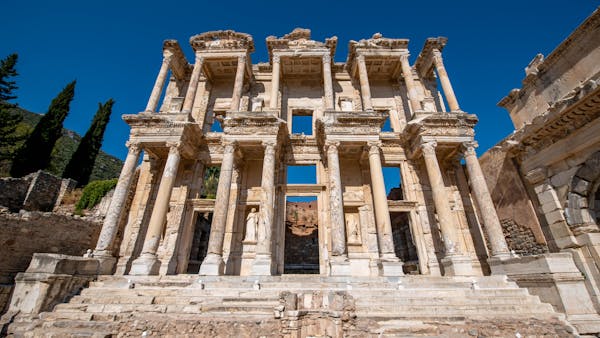JULIA STEED AND THE HESSIAN TENT
This month is women’s history month and as we celebrate the stories of inspiring and inspired women around the world and throughout history, I think it’s important that we recount the stories of women who have made a difference for God in their sphere of influence. Sometimes the most inspiring and empowering stories can be found in the most obscure places. Like a hessian tent set up in Broken Hill, New South Wales, Australia in the year 1889.
The tent was home to the Steed family, originally from South Australia but recently moved to Broken Hill, New South Wales. Joseph and Julia Steed found themselves living in a makeshift home in a small frontier mining town in the middle of the Australian Outback by choice rather than circumstance. In 1886 they had attended a series of evangelistic meetings held in Norwood, South Australia and had been drawn to the truths that had been preached there. Julia had heard about the meetings from her midwife Elizabeth Semple.
Julia was so convicted by what she heard that she decided to be baptised in June of 1887. Joseph, though drawn to the message, hesitated. He ran a booming and extremely lucrative business as an interior designer alongside his father and some of the messages he heard during the meetings seemed to be at variance with his business interests.
In fact, they cut deeply across them.
One of the more prominent issues was most likely the Sabbath. Running a family business in partnership with family members who didn’t have the same views on the Sabbath most likely made things complicated as did the prospect of having to shut down his business during the Sabbath hours.
Joseph held back for a year and continued to study the Bible, finally choosing to be baptised in 1888. After his baptism, Joseph’s life took a completely different turn. Separating himself from the family business he chose to engage in the work of preaching the message that had made such a difference in his life.
This meant a significant drop in the family income and a significant change in their living conditions. Enter the hessian tent in the middle of the Australian Outback which became their home in 1889. Julia chose to place herself beside her husband as an uncomplaining partner and teammate on the new adventure they were embarking on. They had three children and Joseph decided to travel between Adelaide and Broken Hill on a bicycle selling literature from door to door. This meant that he was rarely at home.
In fact, his presence in the home was so rare that one day Julia overheard her children telling the neighbour’s children that their father was dead. Distressed she wrote to her husband “come home, your family thinks you are dead!”
Life in the Australian Outback in the late 19th century was not easy. Broken Hill is a frontier mining town located 500 kilometres to the south-east of Adelaide, the capital of South Australia and the closest major city. Sydney, the capital of New South Wales is over 1000 kilometres away. Broken Hill is surrounded by a semi-desert landscape which means that winters, though mild during the day time can become frosty overnight and summers are sweltering, with the dry, baking Australian desert wind often blowing up dust storms and bringing with it swarms of thick, black flies. They wouldn’t have had the luxury of electricity and running water and the closest hospital would have been in Adelaide, which was a long train ride away.
And all of this in a tent which incidentally is also where Julia gave birth to their fourth child.
It wasn’t an easy life but it was a life she chose on account of her commitment to seeing the gospel spread across Australia.

